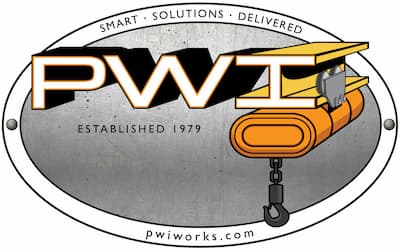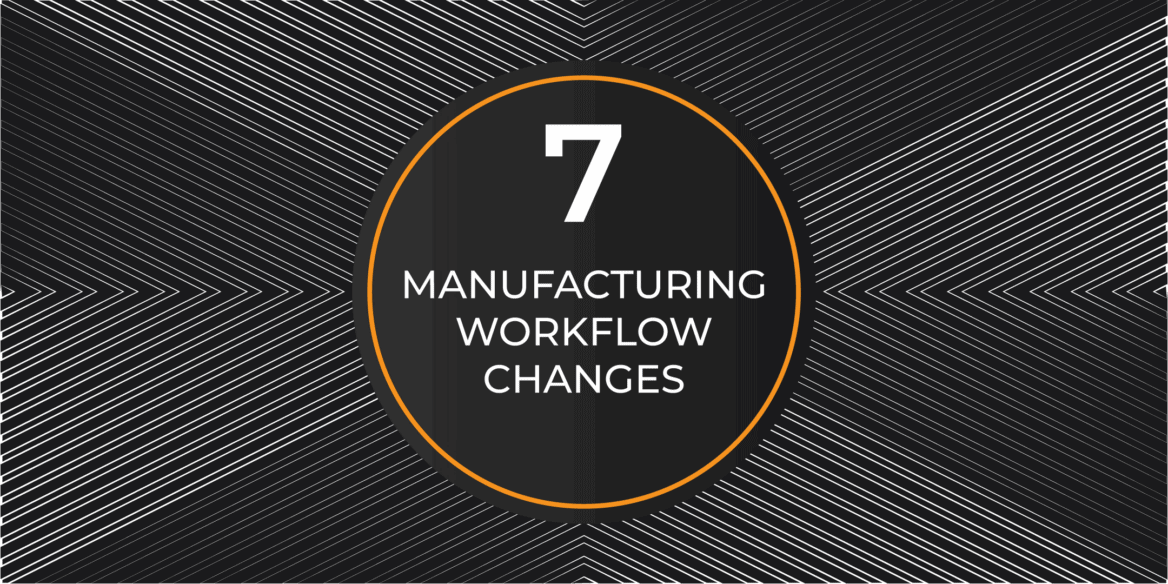Importance of Efficient Manufacturing Workflow
A company’s product does not determine its success.
It doesn’t matter what you produce or how much demand there is for your product. If you can’t produce your product efficiently (producing it under the cost of its market value) your business will not survive.
Producing your product with allowance for a decent profit margin is something you’ve likely handled already. But now you face another problem.
Just because your product is making money, doesn’t mean your competition isn’t producing a similar product for less than what you spend.
If that’s the case then your competition will either be 1.) making more money than you, not a good thing. Or 2.) they’ll be able to sell their product for less than what you sell your product for, really not a good thing.
The only way to avoid either of these outcomes is to spend less money producing your product than your competition.
Factory Efficiency
The efficiency of your factory is going to play an enormous role in your production costs.
Some factors of production cost are beyond your control. Like the price of materials, or the cost to ship them to your factory.
Because there are many factors outside of our control, it is best to focus strongly on the factors that we can control. Factory efficiency is the biggest of those factors.
The following ten items will help you, improve your factory’s efficiency and get the winning edge over your competitors.
1. Have the Right Tools
You need to have the right tools.
If you don’t have the right tools for your employees they will try to work with the tools they’ve got on hand.
This can be very dangerous, and will typically make the job last a lot longer.
Just think about changing a tire using your standard lug wrench vs using an impact wrench.
The lug wrench might take a couple minutes to get all your tire’s bolts off. The impact wrench might take a couple seconds to get those bolts off.
So if you change a lot of tires in your business the impact wrench is going to save you a lot of money in man hours compared to the lug wrench.
Having the proper tools will not only allow your workers to improve production, it will also make them happier because they’re not forced to waste their time.
2. Organize Your Tools
It doesn’t matter if you’ve got the top of the line tools if no one can find them.
A missing hammer is just like having no hammer at all.
I can’t tell you how many hours I’ve spent in some of my jobs just looking for tools because they were misplaced. Whatever number of hours it might be, it is entirely too many!
I didn’t like it when I couldn’t find tools, and I was getting paid to look for them!
Imagine paying someone to spend hours looking for the tools you own. You would probably like it even less than the employee looking for them.
Make sure your employees know where the tools go, and that they get the tools there when not in use.
3. Maintain Your Equipment
You’ve followed the first two tips and have the right tools with their own dedicated spot, great!
Now you’ve got to make sure those tools stay well maintained.
A dull saw blade is not only less efficient, it’s also very dangerous.
Poorly maintained equipment will at best lead to a decrease in productivity, and at worst lead to someone getting seriously injured or killed.
The good news is that if you keep your equipment well maintained, it will have a greater lifespan and be more of an asset to your business.
If your business owns a couple work vans or trucks, it will be much easier to sell them if you’ve got a long service history and they’re in good condition.
That means less cutting into business profits when it comes time to upgrade.
The same goes for most machines and equipment that might need to be upgraded in the future.
4. Streamline the Process
If you haven’t heard the story of the Nummi factory, I can’t recommend this episode of American Life enough.
There is one main take away from the Nummi story, and that is that the process is vital.
If there is any waste in the process, your business will feel it in its checkbooks.
The production line process is what Toyota had perfected and is exactly what the Nummi factory wanted to emulate.
After implementing some of the streamlined processes the Nummi factory did have some major improvements.
By focusing more on your process, you will see a great improvement in your business.
5. Get Employee Input
You may have a good grasp of the production line process as a manager or factory owner, but chances are you don’t spend forty hours a week on the factory line.
So why would you assume you know more about streamlining production than the person that is hands on with the production process forty hours a week?
Sometimes we think we know better than our employees by virtue of us having hiring and firing power over them. We are often wrong in this assumption.
Even if you are an expert on your production line and know how to make the production process go smoother, it doesn’t hurt to ask your staff.
In fact, by asking your employees “How can I make your work faster/more efficient/easier?” You will be demonstrating that you value their input, and don’t want to waste their time by making them work inefficiently.
That will gain you more respect as a leader and make your employees feel more valued, two big wins for your company.
When you do ask your employees for their input, be sure to record their suggestions and try to implement the most feasible ones.
6. Focus on Employee Training
I’m not talking about the “what to do incase of a hurricane” kind of training.
Rather the “how do I get a lot better at my job” kind of training.
By focusing on helping your employees improve their on the job skills you’re giving them a lot of value. A master welder can demand much more pay than an entry level welder.
But the best part is as their skills improve, so will the quality of their work.
Which means higher quality products being produced in your factory.
Here’s another way to look at it.
If you offer your employees the opportunity to improve their skills, you just might get some of them to become more passionate about their work.
Instead of seeing certain tasks as a tedious job, they might begin to see those tasks as a challenge to take head on.
The task really doesn’t matter.
If your employee can do it well, they might just feel proud of themselves for doing a good job.
This is a big win-win for your business and your employees.
So by getting them to be skilled enough at their job to do consistently great work, you will also be cultivating their passion.
Just focus on getting them the right training.
7. Encourage (or even mandate) Greater Communication
One way to make sure we stay ahead of the competition is to limit the number of setbacks or workplace mishaps that might occur.
Usually these mishaps can be prevented by not relying on one person to take on the responsibility for the task at hand.
Having checklists that are read aloud from one person to another is a great way to improve communication.
Making this part of the production process is an often under-looked area which would increase productivity and safety.
By communicating during some of the more dangerous parts of the production process, employees get the benefit of an added set of eyes to make sure they’re not forgetting something important or about to do something dangerous.
This is helpful to new employees because it keeps them from making mistakes that would be obvious for someone more experienced.
It’s also helpful to experienced employees, who might assume their experience means they can go on auto pilot during important steps of the production process.
I know some very experienced woodworkers who would have more of their fingers had they followed certain safety procedures.
Injuries can call for time off or worse complete loss of function. You don’t want to lose your most experienced employees to something that is preventable.
An added benefit is it will force you to work on point #4, streamlining your process.
Conclusion
To best implement these changes, start slowly.
You’ll likely get a lot of resistance from your employees if you start making radical changes to everything.
PWI can look at the problem areas of your factory and start with the solution that would best address the worst problem.
PWI is an expert in manufacturing workflows and has over 40 years of experience of working with manufacturing plants. PWI can create a custom work area and floor plan for your space.
After working with PWI, your workspace will look a lot different. Your factory will experience less downtime, be more efficient, and be more profitable.


![New Construction vs Mezzanine [PDF]](https://feqfc6pbctcc-u6419.pressidiumcdn.com/wp-content/uploads/new-construction-vs-mezzanine-pdf-464x600.jpg)